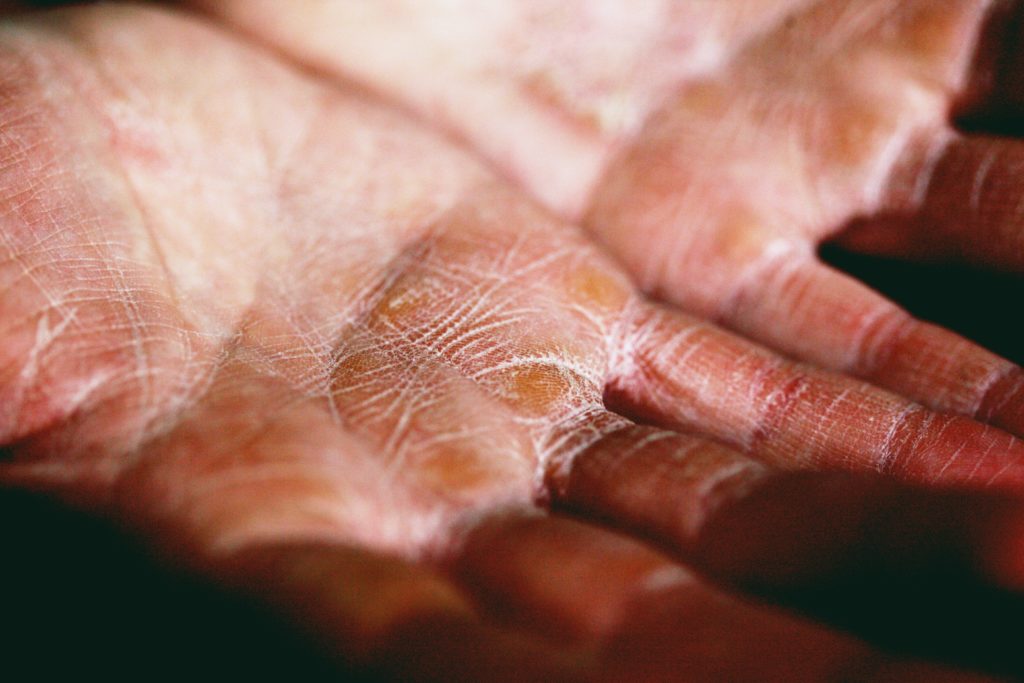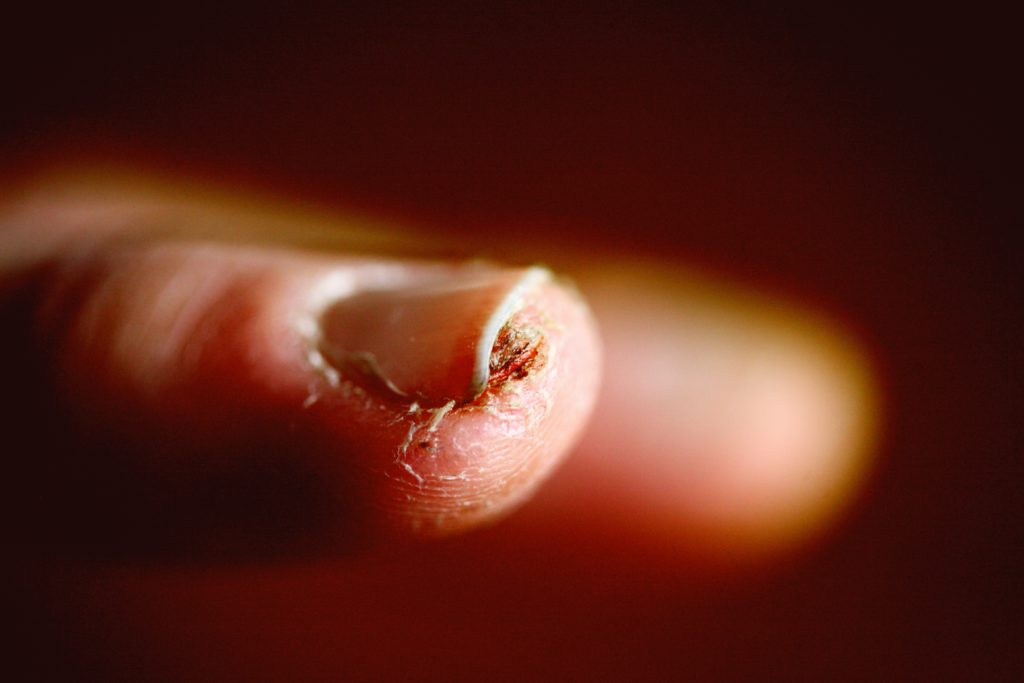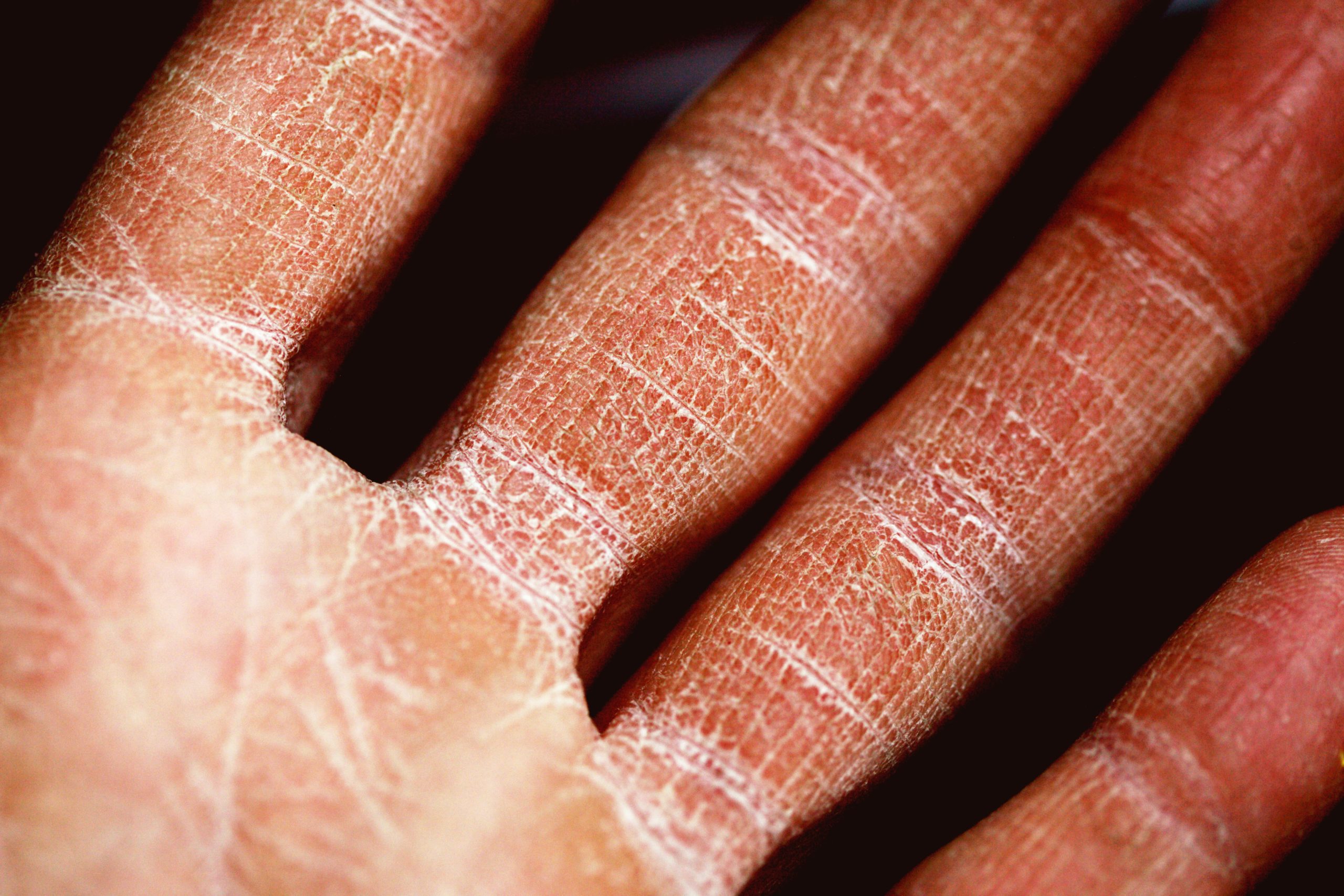Winter is a time of hot cocoa, cozy blankets, and holiday cheer, but it can be a season of itchy, painful, and inflamed skin for those who suffer from eczema.
While many people experience a sudden eczema flare-up during winter, pinpointing the exact cause can be challenging. This common skin condition can make you feel uncomfortable and self-conscious, which is why it’s essential to understand what triggers eczema during this time of the year.
In this article, we will explore some of the most common factors that contribute to eczema flare-up in the winter and provide tips on how to manage them.
Contributing Factors to Eczema Flare-Up in Winter

1. Dry and Cold Weather
Cold and dry weather can also cause the skin to become more sensitive, making it more prone to irritants that can cause eczema. Therefore, it is essential to take extra care of the skin during winter by moisturizing regularly, avoiding harsh soaps and detergents, and wearing protective clothing when going outside.
2. Low Humidity
Low humidity is one of the contributing factors to eczema flare-ups in winter because it causes the skin to become dry and itchy. During winter, the air outside is cold, and when we turn on the heat inside our homes and offices, it can cause the humidity levels to drop significantly.
This low humidity can cause the skin to lose moisture, making it dry, cracked, and more prone to eczema flare-ups. In addition, low humidity can also cause the skin to become more sensitive, which can trigger an eczema flare-up even if you don’t have the condition.
Therefore, it is crucial to maintain a proper humidity level inside your home by using a humidifier, especially during the winter months, to help prevent eczema flare-ups.
3. Indoor Heating
As the weather turns colder, people tend to spend more time indoors, and the use of central heating systems and space heaters increases. While indoor heating is essential for keeping us warm and comfortable during the winter months, it can also cause the air inside our homes to become dry. This dry air can rob the skin of moisture, leading to itchy, dry, and flaky skin.
The lack of humidity in the air due to indoor heating can increase eczema flare-ups. The dry air can cause the skin to become more sensitive, increasing itching and inflammation. Dry skin is more prone to eczema flare-ups, and the dry air inside the house can also cause the skin to crack, leading to further irritation.
Moreover, indoor heating can also create a perfect environment for dust mites, which are known to trigger eczema. The heat generated by the central heating system can cause dust mites to thrive, increasing their numbers. Dust mites can be found in bedding, carpets, and upholstery, and they can cause an allergic reaction in some people, exacerbating eczema symptoms.
4. Exposure to Allergens
During the winter months, people spend more time indoors, which increases their exposure to allergens like dust mites, pet dander, and mold. These allergens can irritate the skin and trigger eczema symptoms.
Moreover, in winter, the air is dry, and people tend to take hot showers and use central heating systems, which can further dry out the skin and trigger eczema flare-ups. Additionally, exposure to woollen clothing and fabrics, which can irritate the skin and cause itching, can also contribute to eczema flare-ups in winter.
5. Lifestyle Changes
Lifestyle changes can contribute to eczema flare-ups in winter in several ways. First, during winter, people tend to spend more time indoors with the heat on, which can cause the air to become dry. This dryness can cause the skin to become dry and itchy, leading to eczema flare-ups.
Second, people tend to take hot showers during the winter, which can also contribute to dry skin. Hot water can strip the skin of natural oils, leading to dryness and itchiness.
Third, people may change their diet during the winter months, which can trigger eczema flare-ups. Consuming foods high in sugar, alcohol, and processed foods can cause inflammation in the body, leading to eczema flare-ups.
Finally, people may also change their clothing during winter, wearing more synthetic fabrics that can irritate the skin. Additionally, people may wear more layers, which can cause sweating and friction, leading to eczema flare-ups.
Effects of Eczema Flare-Ups in Winter
1. Skin Irritation and Itching
Eczema is a chronic inflammatory skin condition characterized by dry, itchy, red, and inflamed skin. During the winter, the cold, dry air can exacerbate these symptoms, leading to intense itching and skin irritation.
The skin may become cracked, scaly, and painful, making it difficult to perform daily activities. The constant scratching and rubbing can also lead to further inflammation and bacterial infections, making the condition even more challenging to manage.
To alleviate these symptoms, it is essential to keep the skin hydrated and moisturized, avoid harsh soaps and detergents, and use prescription medication as directed by a healthcare professional.
2. Skin Dryness and Cracks
Eczema flare-ups during winter can lead to skin dryness and cracks. The skin becomes dehydrated and loses its natural moisture barrier, leading to itchiness and discomfort. The dryness can also cause the skin to crack, leading to bleeding and pain.
The cracks can further expose the skin to irritants and allergens, leading to more inflammation and worsening eczema. The severity of dryness and cracks can vary depending on the individual and the extent of their eczema flare-up. Proper skincare and moisturizing can help manage the symptoms and prevent further damage to the skin.
3. Skin Infection
When eczema flares up, the skin becomes more vulnerable to infections.
One of the most common skin infections associated with eczema flare-ups is impetigo. Impetigo is a bacterial infection that affects the skin’s surface, causing blisters, redness, and itching. It often appears as yellow or honey-colored crusts on the affected areas of the skin.
Another common type of skin infection associated with eczema is folliculitis. Folliculitis is an infection of the hair follicles, which can cause skin redness, swelling, and pus-filled bumps.
Skin infections can be uncomfortable and painful, leading to further complications if left untreated. It is essential to seek medical attention if you suspect a skin infection. Your healthcare provider can diagnose and treat the infection and advise on how to prevent further flare-ups of eczema.
4. Sleep Disturbance
Eczema flare-ups in winter can cause severe itching, disturbing your sleep. The skin becomes dry and itchy due to the low humidity and cold temperatures, making it harder to get comfortable and fall asleep.
As the body temperature drops during sleep, the skin may become even itchier, making it harder to stay asleep. This vicious cycle can lead to fatigue, daytime drowsiness, and difficulty concentrating during the day.
Additionally, eczema flare-ups can cause anxiety and stress, further disrupting sleep patterns. It is vital to manage eczema symptoms with appropriate treatments and lifestyle changes to prevent sleep disturbance and improve the overall quality of life.
Prevention and Management of Eczema Flare-Ups in Winter

1. Moisturizing
Moisturizing is an essential prevention and management measure for eczema flare-ups in winter. Cold weather can dry out the skin, leading to itching, flaking, and cracking. Moisturizing the skin regularly can help prevent these symptoms and reduce the risk of eczema flare-ups.
Moisturizers help maintain the skin’s natural moisture barrier, which is essential for preventing moisture loss and keeping the skin hydrated. They also help to soothe itching and irritation, which can be common symptoms of eczema.
When choosing a moisturizer, it is essential to look for fragrance-free and hypoallergenic products, as these are less likely to irritate the skin. Creams and ointments are generally more effective than lotions, as they contain more oil and are better at sealing in moisture.
It is recommended to apply moisturizer immediately after showering or bathing, as this is when the skin is most receptive to absorbing moisture. Applying moisturizer several times a day, especially after washing hands or other activities that can cause moisture loss, can help to maintain the skin’s moisture levels and prevent eczema flare-ups.
2. Avoiding Triggers
Avoiding triggers refers to identifying and staying away from factors that can cause eczema flare-ups. This is a critical prevention and management measure to control eczema during the winter season. Some common triggers include harsh soaps, fragrances, woolen clothing, dust mites, and pet dander.
To avoid triggers, it is essential to identify them and take necessary measures to minimize exposure. For example, mild, fragrance-free soaps and detergents can help prevent skin irritation.
Wearing soft cotton instead of woolen garments can also help minimize itching and irritation. Similarly, vacuuming regularly and keeping pets out of the bedroom can help reduce exposure to dust mites and pet dander.
3. Using Appropriate Clothing
Wearing appropriate clothing is one of the prevention and management measures that can help minimize eczema flare-ups during winter. Here are some tips:
- Wear breathable fabrics: Clothing made of natural fabrics like cotton, silk, and wool are breathable and allows air to circulate. This prevents sweating and reduces the chances of eczema flare-ups.
- Avoid tight clothing: Tight clothing can cause friction and irritate the skin. Wear loose-fitting clothes that do not rub against the skin.
- Dress in layers: Layering clothing allows you to adjust your body temperature and prevents overheating. Overheating can cause sweating, which can trigger eczema flare-ups.
- Use gloves and socks: Wearing gloves and socks can help keep your hands and feet warm and prevent dryness and cracking of the skin.
- Use a scarf and hat: A scarf and hat can protect your neck and head from the cold, dry air. This can help prevent eczema flare-ups in these areas.
- Wash clothes with mild detergents: Harsh detergents can irritate the skin and cause eczema flare-ups. Use mild detergents and avoid fabric softeners.
4. Keeping a Balanced Diet
Here are some tips on keeping a balanced diet to prevent and manage eczema flare-ups in winter:
- Include foods rich in omega-3 fatty acids: Omega-3 fatty acids are anti-inflammatory and can help reduce inflammation. Foods rich in omega-3 fatty acids include fish, flaxseeds, chia seeds, and walnuts.
- Eat various fruits and vegetables: Fruits and vegetables are rich in antioxidants, vitamins, and minerals that can help boost your immune system and protect your skin from damage. Aim to eat a variety of colorful fruits and vegetables daily.
- Avoid processed foods and sugar: Processed foods and foods high in sugar can trigger inflammation and cause eczema flare-ups. Limit your intake of these foods and choose whole, unprocessed foods instead.
- Stay hydrated: Drinking enough water can help keep your skin hydrated and prevent dryness. Aim to drink at least eight glasses of water daily.
- Consider probiotics: Probiotics are beneficial bacteria that can help improve gut health and boost the immune system. Studies have shown that probiotics can also help reduce eczema symptoms.
- Consult a dietitian: If you have severe eczema or other health conditions, consulting a dietitian who can help you create a personalized diet plan may be helpful.
5. Medical Treatments
Here are some medical treatments that can help prevent and manage eczema flare-ups in winter:
- Topical steroids: Topical steroids are a common treatment for eczema. They reduce inflammation, redness, and itching. Your healthcare provider may prescribe a low-potency steroid cream for sensitive areas like the face and a high-potency cream for other body areas.
- Moisturizers: Moisturizers are essential for keeping the skin hydrated and preventing dryness. Choose a thick, emollient-based moisturizer that is free of fragrances and additives.
- Calcineurin inhibitors: Calcineurin inhibitors are a class of medications that reduce inflammation and are used to treat eczema. They are often used as an alternative to topical steroids for sensitive areas like the face and neck.
- Phototherapy: Phototherapy involves exposing the skin to ultraviolet light, which can help reduce inflammation and itching. This treatment is usually done in a healthcare provider’s office.
- Systemic medications: If eczema is severe and not responding to other treatments, your healthcare provider may prescribe systemic medications like oral corticosteroids or immunosuppressants. These medications have potential side effects and are usually used for short periods.
Conclusion
Eczema flare-ups during winter are a common occurrence that factors such as cold temperatures, low humidity, and exposure to irritants can cause. Be mindful of these triggers and take precautions to prevent flare-ups, such as avoiding harsh soaps, using a humidifier, and moisturizing regularly.
With the right care, those with eczema can still enjoy the winter season without worrying about uncomfortable flare-ups.



